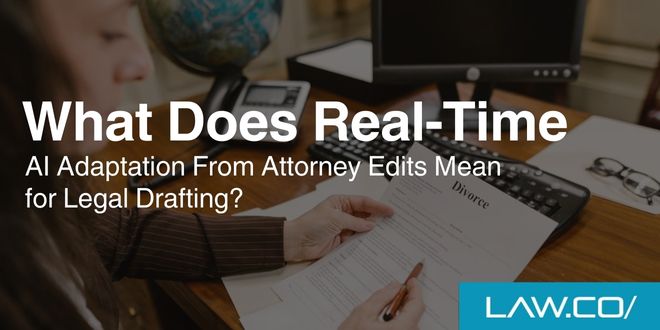

The Key Components of Effective Web Design for Lawyers
A professional and attractive website is essential in every industry nowadays, and the legal profession is no exception to this rule. A well-crafted website may be a powerful promotional tool, bringing in new clients and enhancing an attorney's standing in the community. But, to effectively and persuasively express the firm's principles, offers, and dependability, designing a website for a law business requires careful thought and execution.This article will discuss the qualities of an excellent legal website and those that make it suitable. First, we'll cover the importance of knowing your audience so you can create material for your website that will honestly speak to them. The importance of user experience (UX) design to your website's success will be discussed next. We will also go over visual design and branding principles, such as utilizing color, font, and imagery to establish your law firm's online persona.After this blog post, you will have a firmer grasp of the fundamentals of creating a successful website for a legal firm. This manual will help you develop a website that propels company growth and improves your internet visibility, whether you're a sole practitioner or part of a major law firm.
Recognizing Your Target Market

The first step in creating a successful website for your legal business is to identify your target demographic. If you want your website visitors to have a good experience and become paying customers, you need to cater to their specific wants, requirements, and expectations. Finding your audience requires research into their demographics, interests, and behavior on your website.One strategy is creating buyer personas or fictional representations of your ideal customers. Include age, gender, location, and income in addition to the specific goals, pain spots, and preferred means of communication for each persona you create. You can better serve your audience by catering to their requirements and relieving their pain if you fully grasp their motivations and challenges.Analyzing your visitors' actions on the website is also crucial to getting to know them. You can learn a lot about your audience's involvement and preferences by using tools like Google Analytics to monitor data like bounce rate, time on site, and page visits. For instance, a high bounce rate on a specific page could mean something about the page's content or design isn't connecting with visitors.Knowing who you want to visit your website and why will help you create content that will appeal to them…
Designers of User Interfaces (UI)

How well your website is made for its visitors will determine how well it does (UX). If the UX design has been well thought out and put into place, users will stay on your site longer and are more likely to get the service from you. A well-crafted navigation menu will be neatly laid out, simple to read, and lead site users directly to the content they need. Adding a search bar is another valuable tool for facilitating site navigation.Page load time is another essential part of UX design. Visitors will likely become frustrated and depart if your website takes too long to load. This will increase your bounce rate. You may make your website load faster by reducing the size of files and videos, using a content delivery network (CDN), and optimizing images.UX design involves more than just easy navigation and fast loading times; layout, typography, and color are also crucial. Your website's design should be aesthetically pleasing, simple to read, and feature a coherent flow of content. The font size should be readable on all devices and remain consistent throughout. The use of color is significant in UX design because it may profoundly affect the feel and atmosphere of a website.In sum, if you want your law firm's website to succeed, UX design is essential. A positive user experience can be created by building a website with a clear and straightforward navigation menu, quick page speeds, and visually appealing layouts, typography, and color schemes.
Marketing and Visual Communication

Effective lawyer website design requires a focus on branding and visual design. Your law firm's identity is the cornerstone of your digital footprint and must permeate every element of your website. Building a trustworthy and memorable brand identity can help your legal practice stand out. Some fundamentals of logo and graphic design are as follows:
- Branding: The logo for your law practice is essential for building recognition. Your legal firm's motto should be featured prominently on your website; it should be visually appealing and memorable and convey the firm's beliefs and personality.
- Color: Color may significantly impact the feel and personality of your website, making it an essential factor in branding and visual design. Ensure the website's color scheme reflects the ideals and character of your law practice.
- Typography: How your law firm's name and other text are presented might send a message about their services. Choose legible fonts that also capture the spirit of your legal practice.
- Visuals: Having high-quality photos on your website is a great way to boost its aesthetic value and the trustworthiness of your law practice. Images that are appropriate and representative of the services your legal course provides should be used.
Your law business's beliefs, personality, and trustworthiness may all be reflected in your online presence if you invest in branding and graphic design. Differentiating your business from the competition, gaining the trust of potential customers, and raising brand awareness all stem from having a distinctive brand identity.
Content Strategy

A well-planned and executed content strategy can greatly benefit your legal firm's online visibility. Your content is the lifeblood of your website and the key to establishing your law business as a thought leader in your field. Your material should serve your audience's needs and interests while advancing your law firm's mission and values.Some crucial components of a winning lawyer web design and content strategy are as follows:
- Blog: You can promote your law company as an industry leader by keeping a blog on your website. Your blog posts should be informative and helpful to your readers by answering their questions and addressing their issues.
- Practice areas: Your website visitors will be able to immediately ascertain whether or not your law firm is a good fit for their legal needs if you clearly outline the areas of practice your law company specializes in.
- Biographies of Attorneys: Giving extensive biographies of your attorneys can assist in establishing their knowledge and experience and developing confidence with future clients.
- Testimonials: Including testimonials from satisfied clients on your website is an excellent way to establish your law firm's expertise and professionalism.
- Call to action: Clear "calls to action," such as "schedule a consultation" or "contact our law office," should be sprinkled liberally across your website to encourage users to take the next logical step in the client journey.
You may position your law company as an industry leader and win the trust of prospective clients by formulating and implementing a thorough content strategy. Increase your website's visibility and traffic by optimizing it for search engines with helpful and informative content.
Mobile Optimization

More individuals than ever before are using mobile devices to connect to the internet. For this reason, your legal firm's website must be mobile-friendly. Websites optimized for mobile use adapt to the screen size of their visitors, looking fantastic on everything from desktop computers to smartphones and tablets. These are some essential factors to think about when optimizing for mobile:
- Responsive Design: Your legal firm's website should have a responsive layout that changes to accommodate various screen sizes. Your site's design will remain the same across all devices, regardless of their screen size.
- Mobile-friendly navigation: Site navigation that works well on mobile devices should be intuitive and easy to use. A space-saving and aesthetically pleasing option is to utilize a hamburger menu icon.
- Large Buttons and Text: The text and buttons on your mobile site should be easily readable and tappable, even on tiny screens. As a result, your site's visitors will have a better time using it.
- Optimized Images and Videos: Graphics and videos on your site should be mobile-optimized to save load times and improve the user experience.
Make it mobile-friendly if you want more people to use your law firm's website on their phones or tablets. Google now gives mobile-friendly websites a boost in search results, so making your site mobile-friendly is a win-win.A well-designed website is essential for law firms seeking to expand their online clientele. Law firms can create a website that looks great and functions well. It provides value to its visitors by incorporating the elements discussed in this article, such as a clean and professional design, strong calls to action, informative content, easy navigation, and mobile optimization.Remember that designing a website is not a one-and-done job but an iterative process that should be constantly evaluated and enhanced.A well-designed website may help your law practice stand out and win new clients in the cutthroat legal sector. Your law firm's website should be designed with the best practices discussed in this article to attract new clients and expand your practice.

%201.svg)










